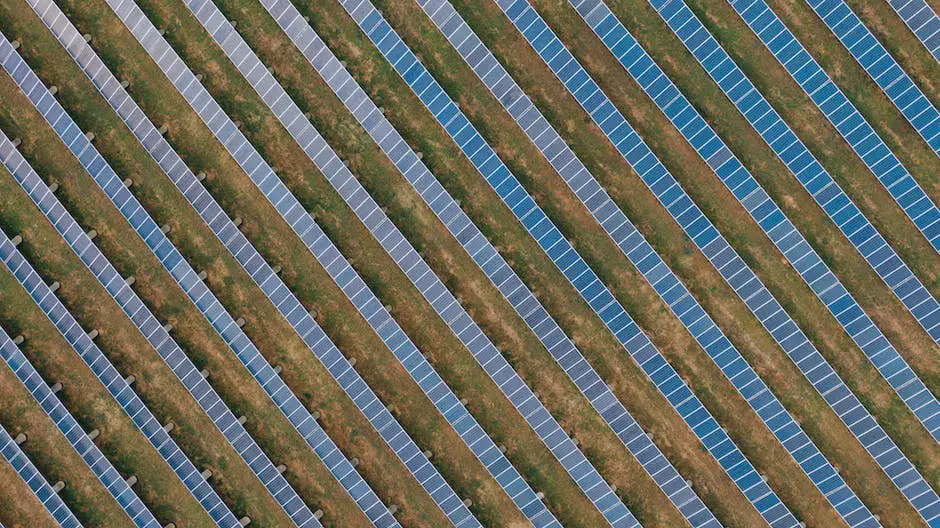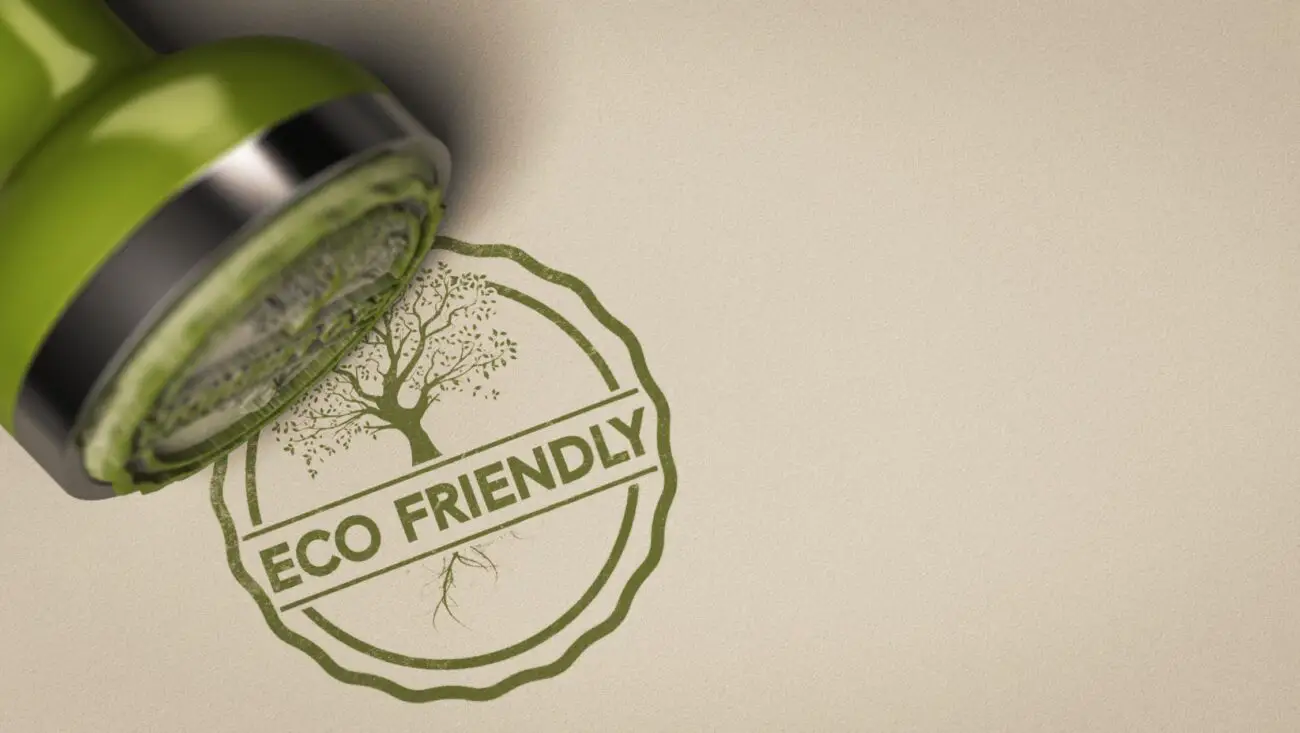As our society becomes increasingly aware of the environmental challenges we face, the question of sustainable, renewable energy sources continues to take center stage. Biofuels, derived from organic materials, offer a promising solution. However, parallel to this, is the need for effective and sustainable waste management solutions. This discussion not only introduces the vital world of biofuels, their types and manufacturing process, but we also delve into the current waste management practices, the concept and stance of sustainability in waste management, and the recent and transformative advancements in sustainable waste management geared towards biofuels. We further explore how these practices can be implemented at varying levels, from community right up to industry level, while touching on prospective challenges and how they might be surmounted.
Understanding Biofuels
Biofuels: An Overview
Biofuels are a form of renewable energy derived from biological materials or organic matter – essentially, from life or the waste it produces. This category includes a wide variety of sources, from crops like sugarcane and corn, to trash like paper or food waste, and natural resources such as wood and grass. Biofuels can be used to power vehicles, heat homes, and generate electricity, all while significantly reducing greenhouse gas emissions.
Common Types of Biofuels
The three most common types of biofuels are ethanol, biodiesel, and biogas. Each has different properties, uses, and manufacturing processes, but all are a cleaner alternative to fossil fuels.
-
Ethanol is a type of alcohol made by fermenting sugars, starches, and other carbohydrates present in crops like corn and sugarcane. As a renewable source of energy, it is commonly mixed with gasoline to reduce the amount of greenhouse gases released into the atmosphere.
-
Biodiesel is produced from oils or fats using a process called transesterification; it can be derived from plants (like soybeans and canola seeds), animal fats, or recycled grease. Biodiesel can be used in its pure form or combined with diesel in any proportion.
-
Biogas, primarily composed of methane, is a biofuel generated from decomposition of organic waste in the absence of oxygen – a process known as anaerobic digestion. Biogas can be used for heating, electricity production, or as a clean, renewable transportation fuel when compressed.
Sustainable Waste Management and Biofuels
Sustainable waste management for biofuels involves innovative ways to convert waste materials into energy. This not only helps reduce landfill waste but also reduces dependence on fossil fuels, thereby reducing greenhouse gases.
Agricultural waste, forestry residue, and animal manure are some examples of organic waste that can be used to produce biofuel. Anaerobic digestion and pyrolysis are two common methods of converting this waste into usable energy.
Anaerobic digestion involves the breakdown of organic material by microorganisms in the absence of oxygen, producing biogas, which can be used for energy. Pyrolysis involves heating organic materials at high temperatures in the absence of oxygen, resulting in bio-oil, biochar, and synthetic gas, all of which can be used as fuels.
Additionally, municipal solid waste (garbage) can be transformed into bioethanol, biodiesel, and biogas through various technologies, such as thermochemical conversion and microbial fermentation, contributing to sustainable waste management.
Understanding the Environmental Impact of Biofuels
Biofuels often have a smaller carbon footprint than fossil fuels, taking into account their full lifecycle. This is due to the balance in the carbon cycle that biofuels maintain: the carbon dioxide (CO2) they emit when combusted is equivalent to the CO2 absorbed during the growth of their source plants. In contrast, fossil fuels release CO2 that had been long locked away, causing a net increase in atmospheric carbon levels.
Nevertheless, biofuels do have their own challenges in terms of environmental impact. The conversion of land for the cultivation of biofuel crops can result in deforestation and biodiversity loss. Additionally, biofuels crops can demand high levels of water and potent pesticides and fertilizers, more so than some conventional crops. The process of biofuel production itself can also result in the creation of waste and other pollutants.
But through sustainable waste management strategies, these challenges can be addressed. By using waste materials as a feedstock for biofuel production, we can lessen the need for land and other resources to grow biofuel crops. This approach also provides an alternate destination for waste that would otherwise end up in a landfill, contributing to a more circular, less wasteful economy.
However, to fully embrace the potential of biofuels, it’s crucial we consider their whole lifecycle impact, ensuring that they offer a truly sustainable and beneficial alternative for our climate and broader environment.

Current Waste Management Practices
Exploring Current Waste Management Approaches
The prevailing model in waste management tends towards a linear, or “cradle-to-grave” approach. Essentially, this means waste and byproducts are thrown away after use in the production or consumption process, rather than being repurposed or recycled. This model runs across all types of waste, encompassing waste streams as diverse as agricultural, industrial, domestic, hazardous, and medical waste.
Traditional Waste Management Methods
Traditional waste management methods include three main types: landfills, incineration, and recycling. Landfills involve waste being dumped into a site where it will gradually decompose. Incineration, however, entails burning the waste, which can generate energy. Recycling involves processing used or discarded items into new products.
Environmental and Human Health Impacts
There are significant environmental concerns associated with current waste management practices. Landfills can lead to groundwater and soil pollution due to the leakage of harmful chemicals. Incineration can produce harmful emissions, contributing to air pollution and climate change. Even recycling processes may lead to environmental degradation, such as water pollution caused by effluent discharge during washing processes.
From a human health point of view, waste management practices may cause various types of diseases. For instance, waste dumpsites can attract vectors such as mosquitoes, rats, and flies, leading to vector-borne diseases. Hazardous waste can cause serious health issues, like cancers, respiratory diseases, and dermatological problems.
Costs Associated with Waste Management
The financial costs associated with waste management can be significant. These costs include operational costs, like collection and transportation of waste, as well as the costs associated with building and maintaining facilities such as landfills and incinerators. Furthermore, there are costs associated with managing the environmental and health impacts of waste management, which are often borne by society at large rather than the businesses responsible for generating the waste.
Sustainable Waste Management Solutions and Biofuels
In light of these issues, it’s imperative to shift to Sustainable Waste Management Solutions, particularly those involving the production of biofuels. Biofuels, such as bioethanol and biodiesel, can be produced from organic waste, reducing the amount of waste that goes to landfills and incinerators.
For instance, organic waste like food scraps and yard waste can undergo anaerobic digestion to produce biogas; a renewable energy source. Similarly, used cooking oil can be processed into biodiesel, providing a greener alternative to diesel fuel.
Challenges and Future Prospects
Utilizing sustainable waste management solutions have the potential to lessen environmental contamination, curtail related health risks, and bring about economic advantages. By converting waste into a beneficial resource, we cut down trash deposits in landfills while also creating valuable commodities that can propel local economies.
Despite their potential, there are still hurdles that hinder the widespread implementation of biofuels derived from waste. Among these are technical complications, cost-effectiveness, and legislative matters. These issues necessitate extensive research, development, and supportive policies to help usher society towards sustainable waste management for biofuel production.

Photo by gary_at_unsplash on Unsplash
Sustainability in Waste Management
Comprehending Sustainable Waste Management
Sustainable waste management emphasizes the need for waste treatment that minimizes environmental harm and optimizes resource recovery. This concept focuses on the principle of reducing, reusing, and recycling waste, moving away from the traditional method of simply disposing of it in landfill areas. This method is advantageous because it substantially diminishes the amount of waste directed towards landfills, thereby having a beneficial influence on the environment.
Reduction, Reuse, and Recycling in Biofuel Production
Reduction is the first step in the waste hierarchy of sustainable practices. It involves strategies to reduce the amount and toxicity of waste generated. In biofuel production, techniques such as optimizing production processes to minimize the production of waste or improving product designs to use less material or energy can be incorporated.
Reuse refers to using items repeatedly for the same or different purpose without altering their physical state. In biofuel production, this could mean reusing wastes such as cooking oil to produce biodiesel.
Recycling involves processing wasted materials into new, useful products. In the biofuel sector, the conversion of agricultural residues, municipal solid waste, or even industrial waste into bioenergy falls under this category.
Impacts of Sustainable Waste Management on Environment
Implementing sustainable waste management in biofuel production has considerable environmental benefits. By reducing, reusing, and recycling waste, fewer natural resources are used, and less waste is taken to landfills or incinerators. This means less air and water pollution, lower greenhouse gas emissions, and conservation of natural resources.
Economic Implications of Sustainable Waste Management
Besides the environmental benefits, sustainable waste management also has significant economic implications. By turning waste into fuel, companies can create new revenue streams and reduce dependency on fossil fuels. The production of biofuels contributes to local economies, creates jobs, and can even add to the diversity of a country’s energy mix.
An Overview: Sustainable Waste Management and Its Role in Biofuel Production
Across the globe, innovative strategies and technologies are being utilized to maximize sustainable waste management in biofuel production. One such method gaining traction is the utilization of anaerobic digestion technology, particularly in parts of Europe. This technique decomposes organic waste in an environment devoid of oxygen, leading to the production of biogas – a viable, renewable source of energy.
On another front, Brazil is optimally using sugarcane residues, an otherwise waste product, in the making of bioethanol. By doing so, these residues are prevented from decaying and releasing detrimental greenhouse gases, while simultaneously fulfilling a proportion of the nation’s energy requirements.
The prevalence of such waste-to-energy initiatives globally underlines the merit of sustainable waste management in biofuel production.

Developments in Sustainable Waste Management for Biofuels
Transitioning Waste into Biofuel: The Technology and Mechanisms Behind the Process
There’s a slew of pioneering technologies in the field that are challenging traditional waste processing methods. Notably, gasification is a groundbreaking advancement that converts various wastes types, like municipal solid waste (MSW), biomasses, or coal into a synthetic gas known as syngas. This gas, rich in hydrogen and carbon monoxide, can be further transformed into biofuel.
On similar lines, the technology of pyrolysis is making strides in waste processing. Here, organic waste (like plastic or agricultural waste) is subjected to high-temperature heating in an oxygen-free environment. The outcome of this process is the creation of bio-oils, charcoal, and gases which can be harnessed into biofuels.
Industrial Biotechnology and Biofuels
Industrial biotechnology also offers feasible strategies for waste conversion to fuels. One shining example is the production of biofuels from microalgae. The algae use photosynthesis to convert sunlight, water, and carbon dioxide into oils that can be further processed into diesel, jet fuel, and other hydrocarbon products.
Moreover, through the process of anaerobic digestion, organic waste such as food scraps and animal manure are decomposed by bacteria in an oxygen-free environment. This process produces biogas composed of methane and carbon dioxide, which can be used as a biofuel source.
Bio-refineries and Integrated Waste Management
Bio-refineries, which use multiple waste feedstocks and conversion technologies, have shown tremendous potential for sustainable waste management. They utilize waste as a resource and transform it into multiple products including biofuels. Modern bio-refineries are now incorporating more processes, such as thermochemical conversions (like gasification and pyrolysis) and biological transformations, creating multi-product facilities that operate with maximized efficiency and minimal waste.
Economic and Environmental Benefits
The conversion of waste to biofuels offers significant economic benefits. It promotes resource efficiency, reduces waste disposal costs and provides diversified income sources. These technologies can also create numerous green jobs in waste management, research, technology, and biofuel production sectors.
Environmentally, the practice helps in mitigating greenhouse gas emissions by replacing fossil fuels with renewable biofuels. It also reduces landfills and environmental pollution caused by waste accumulation.
Policy and Support in the Biofuel Market
As linear economies steadily evolve into circular models, the concept of “waste as a resource” is gaining traction on a global scale. Governments worldwide are encouraging the waste-to-biofuel industry’s growth with policies, tax incentives, grants, and subsidies. For instance, establishments like the U.S. Department of Energy are investing heavily into research and development, thus inspiring innovation.
In line with this, commercial sectors and consumers are increasingly acknowledging the worth of renewable energy and sustainability, which has led to an augmented demand for biofuels. Favorable legislation, rapid technological advancements, and market trends are paving the way for the waste-to-biofuel industry’s expansion and success.

Implementing Biofuel Waste Solutions
Grasping the Concept of Biofuels and Waste Management
Biofuels, made from organic plant or animal substances, serve as an alternative renewable energy source to conventional fuels like gasoline or diesel. The types of biofuels range from ethanol and biodiesel to advanced varieties such as cellulosic ethanol. One crucial factor to further the utilization of biofuels is to incorporate sustainable waste management strategies.
Actionable Steps for Sustainable Waste Management for Biofuels
Sustainable waste management practices aimed at biofuel production involve several actionable steps, which include waste segregation, collection, transportation, processing, and final disposal. An essential initiative in promoting such practices is encouraging a culture of waste segregation at the source for easy collection and utilization in biofuel production. This could be done through education and awareness initiatives, and by enforcing policies that reward waste segregation.
Recycled vegetable oils and animal fats can be utilized to produce biodiesel, while organic waste or green waste can be converted into ethanol. Techniques such as pyrolysis or anaerobic digestion can be used to convert these waste materials into biofuels. Furthermore, a strong regulatory framework to support the recycling of used oils and organic waste can help ensure the steady production of biofuel feedstock.
Key Players in Sustainable Waste Management
The successful implementation of such waste management practices requires the collaboration of several key players. These include governments who can create and enforce laws promoting segregation and collection practices; waste management companies for proper waste collection, transportation, and processing; biofuel manufacturers for the conversion of waste to biofuel; and the public, who play a key role as they can actively participate in waste segregation and recycling initiatives.
Potential Challenges and Solutions
There are several potential obstacles to implementing sustainable waste management solutions for biofuels. These include inadequate waste segregation, lack of facility and technology for biofuel conversion, lack of public awareness, and reluctance, as well as insufficient regulatory support.
These challenges can be addressed by investing in technologies for waste processing and conversion to biofuels; promoting awareness and education initiatives to encourage public participation; and through the enactment and enforcement of laws supporting waste segregation, recycling, and biofuel production. Incentives can also be provided to promote the use and production of biofuels.
Role of Technology in Biofuel Production
Advanced technologies play a significant role in the production of biofuels. The application of innovative waste sorting technology can improve waste segregation efficiency, while machinery for biofuel production allows the conversion of organic waste to biofuels. Moreover, the development of smart waste management systems can maximize the utilization of waste materials for biofuel production.
Future of Waste Management and Biofuels
In the future, sustainable waste management can be a key driver in advancing the use of biofuels. The utilization of waste materials not only helps reduce environmental pollution but also promotes energy security and economic stability. An efficient and sustainable waste management system aimed at biofuel production signifies a healthy interconnection between waste management and energy production, which is beneficial for any community or industry.

As we steer towards a sustainable future, it is imperative for us to not only understand the versatility of biofuels and their overall environmental impact but to also look at the innovative and sustainable waste management solutions that they can foster in our strive for renewable energy sources. This exploration has revealed that with responsible and strategic practices, we can convert waste to energy while positively impacting our environment and economy. Accordingly, the duty lies with each one of us, from individuals to business entities, and up to policy-makers, to embrace these sustainable practices and to address and overcome any hurdles that might spring up along this crucial journey. This isn’t just about creating biofuels, but rather, it’s about creating a sustainable, healthier world for future generations.
Also find More By Clicking Below




